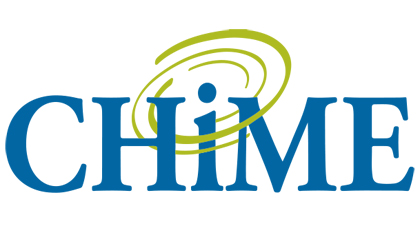
At the University of Colorado Health, C.T. Lin, M.D., has been a passionate advocate for empowering patients through information. He spent more than a decade building support for a program that gives patients access to their records, including clinical notes.
C.T. Lin, M.D., readily admits to being a bit naïve when tried to convince a room full of physicians that patients should have easy access to their electronic health records, including clinical notes.
It was 2002 and the University of Colorado Health, where Lin was director of medical informatics, had just completed a study on the effects of letting patients tap into their records. The yearlong study involved eight physicians and 107 cardiology patients. Going into the study, 71 percent of participating physicians believed that granting this level of access would generate more questions from patients. The same percentage said it would lead to more worry and 57 percent thought that that the reports would be confusing. Just 43 percent thought that it would benefit patient empowerment.
One year later, all of the doctors said that it was a positive for patient empowerment and reported a decline in their negative perceptions — 57 percent said it led to more questions or worries and 43 percent said it resulted in confusion for patients. Nonetheless, Lin was shouted out of the room when he made his case to a broader constituency. “Cardiology patients are easy, mine are much more complicated,” Lin recalls being told.
As healthcare organizations flesh out a variety of patient engagement and transparency strategies, increasing access to medical information is moving to the forefront. The OpenNotes initiative, launched in 2011, is proving to be one of the nation’s most successful and powerful tools in helping to empower patients. The program urges health systems and clinicians to give patients access to the medical notes that are often hidden within the EHR. In late February, CHIME announced that it will work with OpenNotes to spread the concept across the industry, with the aim of reaching 50 million patients within three years. Currently, more a dozen healthcare organizations have signed onto OpenNotes, reaching more than 5 million patients.
Most CHIME members can likely relate to Lin’s story when it comes to trying to influence a significant culture change. Lin did not give up on his goal of increasing patient access to their medical information. He kept pounding the pavement and in 2008 there was a groundswell of support to open up greater access to EHRs, including test results.
As you can imagine, he was excited to be invited to participate in the first national study on OpenNotes in 2011. Unfortunately, the timing couldn’t have been worse.
“We were switching EHRs and that was a big enough change,” he said. “It killed me to turn it down.”
Determined to increase transparency, Lin, who is now chief medical information officer at UCHealth, finally brought OpenNotes to UCHealth in 2014. Seven primary practices signed on. A short time later, six specialty practices came on board.
Read Matthew Weinstock’s full article here!



